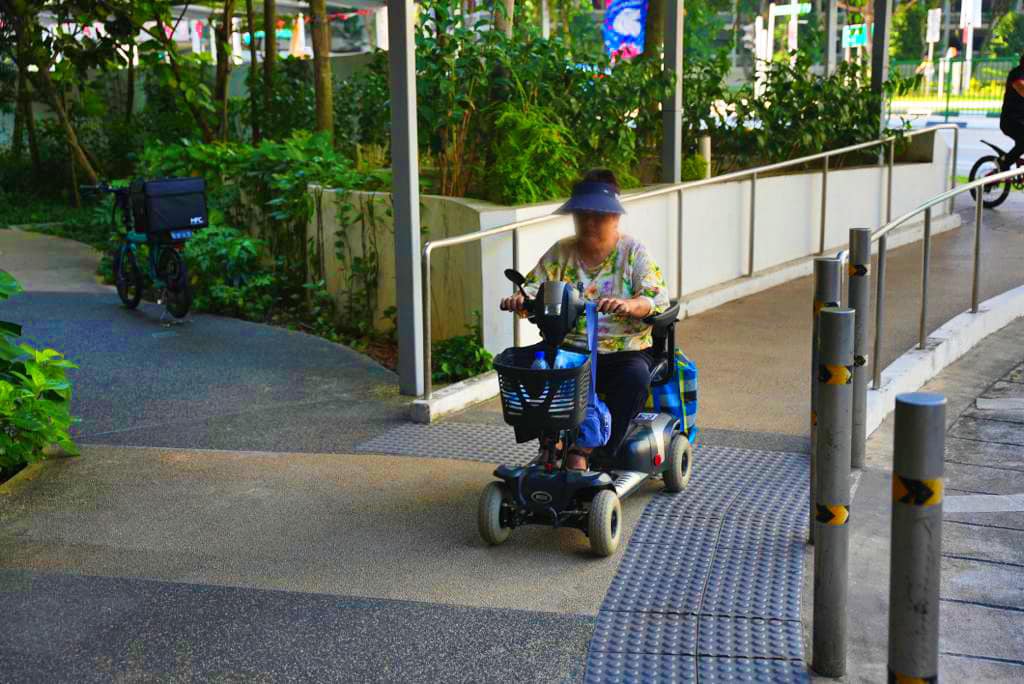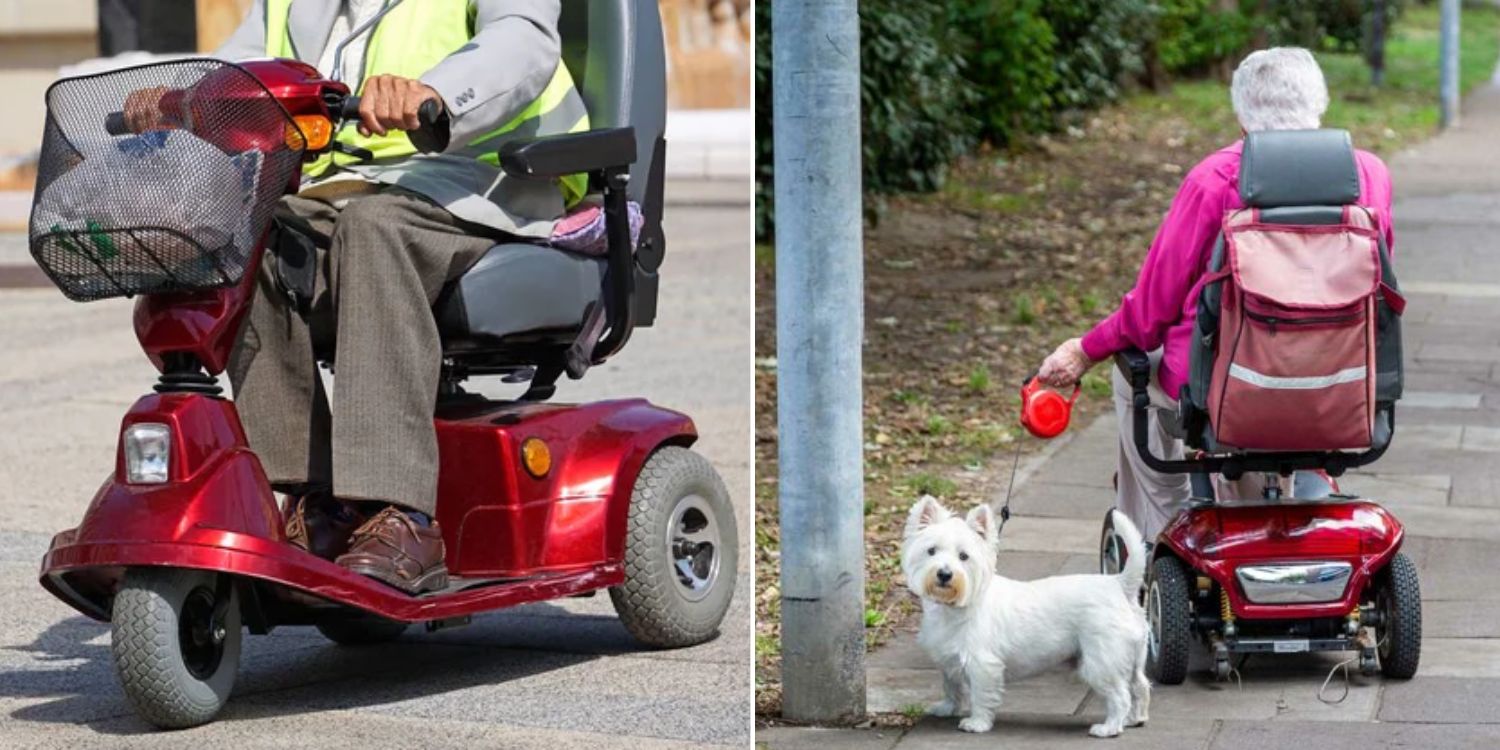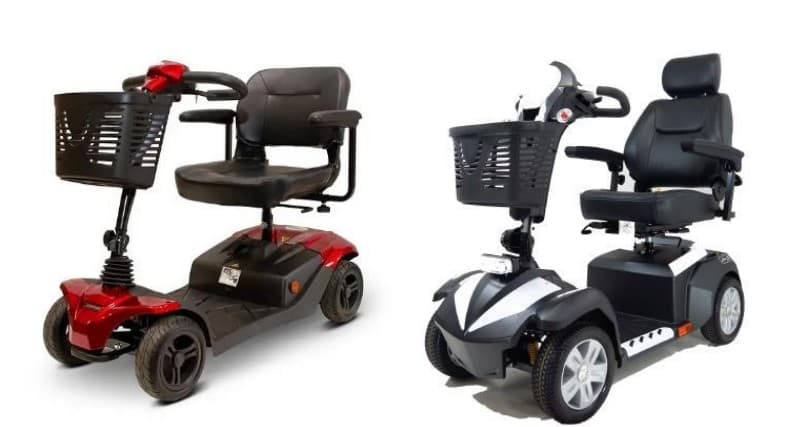Active Mobility Advisory Panel Proposes Lowering PMA Speed Limit
The Active Mobility Advisory Panel (AMAP) has put forth a set of recommendations to curb the misuse of personal mobility aids (PMAs).
The panel recently submitted its proposal to the transport ministry, asking for a reduction in PMA speed limit and restricting mobility scooters — a type of PMA — to those certified with medical needs and walking difficulties.

Source: Baey Yam Keng on Facebook
The proposal comes amid rising concerns that PMAs are being abused by able-bodied individuals and a lack of regulations governing such devices.
Panel recommends reserving mobility scooters for those with medical needs
AMAP set out several recommendations in its proposal submitted to the Ministry of Transport (MOT) on Thursday (14 Dec).
For its first recommendation, AMAP suggests that only users certified with medical needs or walking difficulties are allowed to use mobility scooters.
Mobility scooters are classified as a type of PMA and differ from manual and motorised wheelchairs by their handlebar and footboards.
The panel said they’re typically used as an aid for users with “declining physical capacity and persons with walking difficulties”.
AMAP said the target approach was due to “prevalent feedback of abuse” concerning able-bodied users who use mobility scooters.
Such an approach will “minimise [the] impact on users with genuine needs who are using manual and motorised wheelchairs”, explained the panel.
Users can have their medical needs certified by obtaining a memo from a registered medical professional.
Panel recommends reduction of PMA speed limit
AMAP also called for the PMA speed limit to be reduced from 10km/hour to 6km/hour, such that it’s closer to typical walking speeds.
The panel said that this will better reflect the intended use of PMAs, which is to substitute walking for those with physical disabilities.
AMAP said the new speed limit should apply to all motorised PMAs and will improve safety on paths.
The speed limit is apparently in line with those implemented in other countries.
Recognising that the new speed limit would affect users of devices with speed limits of 10km/hour, AMAP called for “transition measures” so genuine users can continue using their existing PMAs
AMAP also proposed for the 6km/hour speed limit to be used as a differentiating factor between PMDs and PMAs.
Devices that can travel faster than 6km/hour should be considered motorised PMDs even if they bear visual resemblance to PMAs
Such devices will be subjected to PMD regulations, including not being allowed on footpaths.
Panel calls for streamlining of dimension regulations on public transport & paths
AMAP also recommended applying existing PMA dimensions guidelines on public transport to public paths.
Currently, PMAs must comply with the dimension regulations — 70cm by 120cm by 150cm with a laden weight of 150kg — to be allowed on public transport.
The panel said that standardising the guidelines will allow a smoother transition between public transport and public paths.
AMAP also proposed that those who need a larger PMA for medical reasons can seek an exemption by providing a medical certificate.
Recommends enhanced PMA education & enhancement
In addition to the proposed regulations, the panel called for enhanced education efforts on the use of PMAs.
They also urged the government to step up enforcement actions. This includes efforts to deter sales of non-compliant devices.
AMAP, however, advised against the licensing and registration of PMAs as well as mandatory training.
They cited a case study in Australia, which found that registration and licensing led to a “significant burden on users”.
Concerns about PMA abuse on the rise
AMAP’s recommendation came amid increasing concerns about able-bodied individuals misusing mobility scooters.
The panel also highlighted concerns about unsafe PMA usage, including speeding and reckless riding.
Before publishing the recommendations, AMAP carried out three rounds of Focus Group Discussions (FGD) in June and July 2023. Participants included:
- PMA users
- Caregivers
- Occupational therapists
- Pedestrians
- Seniors
Key concerns raised during the FGDs include:
- Misuse of PMAs by seemingly able-bodied individuals and usage behaviours that compromise the safety of other path users
- Lack of regulations on the purchase and safe use of PMAs
- Lack of awareness of the differentiation between mobility scooters and motorised PMDs
In a Facebook post on Thursday (14 Dec), Senior Parliamentary Secretary for Transport Baey Yam Keng added that the panel plans on proposing a “transition period” should MOT accept the recommendations.
Have news you must share? Get in touch with us via email at news@mustsharenews.com.
Featured image adapted from Deposit Photos and Lakeside Medical Supplies for illustration purposes only.










